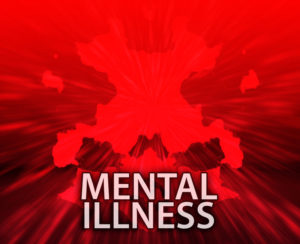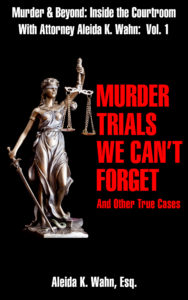
Should pretrial diversion be granted to individuals who have committed a crime because of a mental disorder, thus enabling them to receive treatment rather than prosecution? California has answered this question with a definitive “Yes.” On July 27, 2018, Governor Jerry Brown signed Assembly Bill 1810 granting discretionary diversion for mental health disorders to individuals who can meet specified criteria. The new law is codified in Penal Code Sections 1001.35 and 1001.36.
Opponents of the law argue it creates a dangerous change to the way criminal offenders with mental health diagnoses are treated in the criminal justice system by permitting pretrial diversion to all levels of criminal offenders without restriction, and will detrimentally harm public safety. Others challenge it on constitutional grounds. Only time will tell what the ultimate outcome may be. An analysis of the current law is as follows:
What Crimes are Eligible for Mental Health Diversion?
Under Penal Code Section 1001.36(a) all crimes, felony or misdemeanors, are potentially eligible for diversion.
However, Senate Bill 215 currently seeks to amend this section to make certain offenses ineligible for diversion, including murder, voluntary manslaughter, rape, assault with intent to commit rape, and other specific sexual offenses. Please see: http://leginfo.legislature.ca.gov/faces/billTextClient.xhtml?bill_id=201720180SB215&search_keywords=1001.36
When Can Diversion be Granted?
Under Penal Code Section 1001.36(a) diversion may be granted at any time after the filing of an accusatory pleading.
Who is Eligible for Mental Health Diversion?

Under Penal Code Sections 1001.36(a) and (b) granting of pretrial diversion is discretionary with the Court, but only if all the following requirements are met:
- The defendant must suffer from a mental disorder as identified in the most recent edition of the Diagnostic and Statistical Manual of Mental Disorders (which is currently the DSM-V), including bipolar disorder, schizophrenia, schizoaffective disorder, or post-traumatic stress disorder, but excluding antisocial personality disorder, borderline personality disorder, and pedophilia. A careful analysis of the DSM-V must be conducted to see what mental disorder would qualify. Evidence of the defendant’s mental disorder must be provided by the defense and must include a recent diagnosis by a qualified mental health expert.
- The defendant’s mental disorder must have played a significant role in the commission of the charged offense.
- The defendant’s symptoms motivating the criminal behavior would respond to mental health treatment in the opinion of a qualified mental health expert.
- The defendant must consent to diversion and waive the right to a speedy trial. The exception to this requirement is if the defendant has been found incompetent to stand trial.
- The defendant must agree to comply with treatment.
- The court is satisfied that the defendant will not pose an unreasonable risk of danger to public safety as defined in Penal Code Section 1170.18, if treated in the community. The Court may consider the opinions of the district attorney, the defense, or a qualified mental health expert. The Court may also consider the defendant’s violence and criminal history, the current charged offense, and any other factors that the court deems appropriate.
What is an “Unreasonable Risk of Danger to Public Safety”?
Penal Code Section 1170.18(b) provides the criteria a court may consider in determining whether a person poses “an unreasonable risk of danger to public safety.” The court may consider:
- The defendant’s criminal conviction history, including the type of crimes committed, the extent of injury to victims, the length of prior prison commitments, and the remoteness of the crimes.
- The defendant’s disciplinary record and record of rehabilitation while incarcerated.
- Any other evidence the court determines to be relevant.
Penal Code Section 1170.18(c) further defines an “unreasonable risk of danger to public safety” to mean an unreasonable risk the defendant will commit a new violent felony within the meaning of Section 667(e)(2)(C)(iv). In essence the Court is looking at specific future crimes. The Court must determine whether there is an unreasonable risk that the defendant will commit any of the following offenses:
- A “sexually violent offense” as defined in Welfare & Institutions Code Section 6600(b).
- Oral copulation under Penal Code Section 288a, sodomy under Section 286, or sexual penetration under Section 289, if these offenses are committed with a person who is under 14 years of age, and who is more than 10 years younger than the defendant.
- A lewd or lascivious act involving a child under 14 years of age, in violation of Penal Code Section 288.
- Any homicide offense, including any attempted homicide offense, as defined in Penal Code Sections 187 through 191.5. This includes gross vehicular manslaughter while intoxicated in violation of Section 191.5(a).
- Solicitation to commit murder as defined in Penal Code Section 653f.
- Assault with a machine gun on a peace officer or firefighter, as defined in Penal Code Section 245(d)(3).
- Possession of a weapon of mass destruction as defined in Penal Code Section 11418(a)(1).
- Any serious or violent offense punishable in California by life imprisonment or death.
What are the Program Requirements?
The program selected must meet the following requirements:
- The court must be satisfied that the inpatient or outpatient program will meet the specified mental health treatment needs of the defendant.
- The defendant may be referred to a program of mental health treatment utilizing existing inpatient or outpatient mental health resources, but the entity must agree to accept responsibility for the treatment of the defendant.
- The provider of the mental health treatment program must provide regular reports to the court and both counsel on the defendant’s progress in treatment.
- The diversion program may last no longer than two years.
Can Criminal Proceedings Be Reinstated or the Treatment Modified?
The Court must hold a hearing to determine whether criminal proceedings should be reinstated, whether treatment should be modified or whether the defendant should be referred for conservatorship proceedings if any of the following occur:
- The defendant is charged with an additional misdemeanor allegedly committed during the pretrial diversion and that reflects the defendant’s propensity for violence.
- The defendant is charged with an additional felony allegedly committed during the pretrial diversion.
- The defendant is engaged in criminal conduct rendering him or her unsuitable for diversion.
- Based on the opinion of a qualified mental health expert, either of the following circumstances exist: The defendant is performing unsatisfactorily in the program or the defendant is “gravely disabled” as defined in Welfare and Institutions Code section 5008(h)(1)(B). A defendant shall only be conserved and referred to the conservatorship investigator pursuant to this finding.
Are Criminal Charges Dismissed Upon Successful Completion of Diversion?
Yes. At the end of the period of diversion, if the defendant has performed satisfactorily, the Court must dismiss the criminal charges and the arrest upon which the diversion was based shall be deemed never to have occurred. A defendant has performed satisfactorily if:
- The defendant has substantially complied with the requirements of diversion.
- The defendant has avoided significant new violations of law unrelated to the defendant’s mental health condition.
- The defendant has a plan in place for long-term mental health care.
What May a Defendant Say About the Arrest and Diversion?
Successful completion of diversion allows one to response to any question concerning his or her prior criminal record that he or she was not arrested or diverted for the offense, except as provided in Penal Code Section 1001.36(g). Under subdivision (g), the defendant shall be advised that:
- The arrest upon which the diversion was based may be disclosed by the Department of Justice to any peace officer application request. The defendant has the obligation to disclose the arrest in response to any direct question contained in any questionnaire or application for a peace officer position as defined in Section 830.
- An order to seal records pertaining to an arrest made pursuant to this section has no effect on a criminal justice agency’s ability to access and use those sealed records and information regarding sealed arrests, as described in Section 851.92.
Further, a record pertaining to an arrest and diversion cannot be used against a person without his or her consent “in any way that could result in the denial of any employment, benefit, license or certificate.”
What are the Duties of the Court Upon Dismissal of Criminal Charges?
If the Court dismisses the charges, the following duties are required:
- The clerk must file a record of the dismissal with the Department of Justice.
- The Court must order access to the record of the arrest restricted in accordance with Section 1001.9, except as specified in subdivisions (g) and (h).
- The defendant must be advised as stated directly above.
May a Person Found Incompetent to Stand Trial Be Eligible for Diversion?
Yes. Even though a defendant has been found incompetent to stand trial, the defendant may be eligible for diversion under Penal Code Sections 1370 and 1370.01.
Defendants charged with a felony and found incompetent to stand trial are eligible for diversion if:
- The defendant has not been transported to a mental health facility.
- The Court has been provided with any information that the defendant may benefit from diversion.
- The Court determines the defendant appropriate for diversion.
- The diversion program may not last any longer than two years.
Defendants charged with a misdemeanor and found incompetent to stand trial are eligible for diversion if:
- The Court determines the defendant appropriate for diversion.
- The diversion program may not last any longer than one year.
Amendments to this New Mental Health Diversion Law Currently Pending:
Senate Bill 215 currently seeks to amend Penal Code Section 1001.36. You may read the details at: http://leginfo.legislature.ca.gov/faces/billTextClient.xhtml?bill_id=201720180SB215&search_keywords=1001.36
About Aleida K. Wahn, Esq.


I am an attorney, award-winning true crime writer, and legal analyst of criminal cases. I cover criminal trials and write stories and books about compelling, gripping, and unforgettable cases that impact our world. I take you into the courtroom in high-profile murder trials, rape cases, crimes of passion, cases involving mental illness, deviant behavior, and more. I have a deep passion for true crime, criminal law, and all aspects of the criminal justice system. I have appeared as an expert on true crime shows, including “48 Hours,” “Snapped,” and “The Dead Files,” and provided legal analysis on high-profile criminal trials on Court TV, the Law & Crime Trial Network, Fox 5 News, ABC 10 News, and KUSI News. I also create and host shows with the Del Mar Television Producers Group, addressing criminal justice and social issues in recent criminal trials.
I provided my insight and legal analysis on Court TV and the Law & Crime Trial Network of the high-profile trial of former NFL star Kellen Winslow Jr. It was a trial that captured the nation as the heralded ex-football star with fame, fortune, and a famous name stood accused of multiple rapes and other sex crimes involving five women. As the trial delved into shocking facts, complicated legal issues, and unexpected twists and turns, I was there for every minute. After the trial, I wrote a book on the case, going behind the headlines to share the extraordinary details of what happened inside the courtroom. Judging Winslow Jr.: From NFL Star to Serial Rapist? Inside the Shocking Rape Trial of Kellen Boswell Winslow II is now available on Amazon.
I am passionate about telling true crime stories, as these penetrating stories have the power to move us all, while highlighting societal issues which need to be addressed. I have personally seen the human devastation which is present in each trial and believe there is a lesson to be learned in every single case. It is through awareness and examining critical issues society can effect change and even make new laws. To learn more, please visit: https://www.aleidalaw.com.
Read about the gripping and unforgettable trials that I have covered in my latest books:





